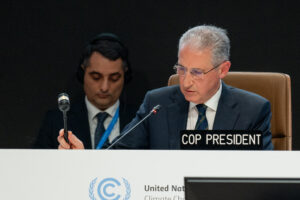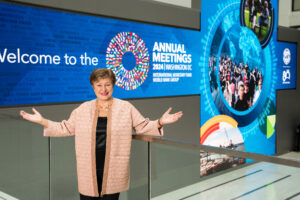At its 21st replenishment conference, held December 4 and 5 in the Republic of Korea, the World Bank’s International Development Association (IDA) raised $24 billion in donor contributions, which will leverage a total of $100 billion in financing.
The amount achieved marks an increase from $93 billion raised in 2021 (IDA20) yet it falls short of the funding African leaders had requested, which had hoped for more support given the multiple crises that are undermining their ability to achieve the Sustainable Development Goals (SDGs) and with them global security and prosperity.
Luca Bergamaschi, Director and Co-founder of ECCO, the Italian climate think tank, said:
“An increased IDA is a significant commitment by G7 countries which finally put some new development finance on the table which is also in line with the COP29 deal. Italy’s increase and support for IDA during the year of the G7 presidency – which occurred with the announcement of increase of its share by President Meloni at the G20 Summit in Rio – confirms that multilateral development assistance is vital for supporting stability, peace, and security, and this is ever so crucial for Africa’s future resilience and development.”
IDA is the world’s largest source of development finance through highly concessional loans and grants with long term repayment periods to the world’s 78 poorest countries. About one-third of IDA resources are allocated to countries at the greatest risk of debt distress, and more than 70% are directed to African countries.
In 2022, IDA was the largest provider of climate finance to African countries with $4.45 billion. The climate finance mobilized by IDA will critically contribute to the new climate goal (NCQG) adopted at COP29 in Baku.
Eleonora Cogo, Senior Associate International Finance at ECCO, added:
“This is good news for climate following the results of COP29. IDA, together with contributions from other Multilateral Development Banks, will play a crucial role in achieving the goal agreed in Baku of tripling support to developing countries by 2035, and is particularly significant given the highly concessional nature of its funding.”
Photo by John Vid






